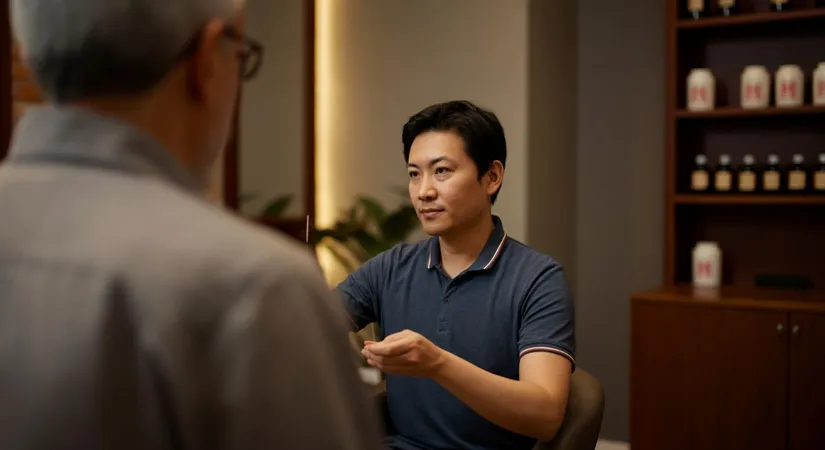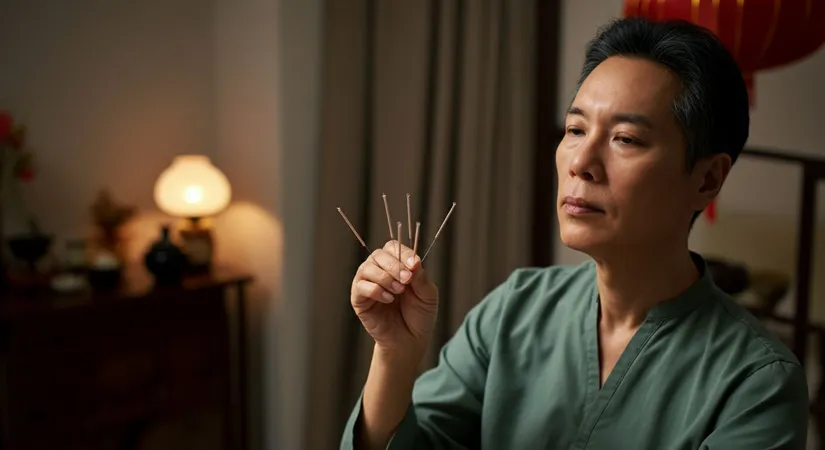Discover Chinese Medicine Near Me: A Journey into Traditional Healing
Discover unparalleled healing through Chinese medicine near you, bridging ancient practices with modern health.
Chinese medicine has long been a source of fascination and healing, offering a wellspring of ancient knowledge that continues to captivate modern audiences. As the world becomes increasingly interconnected, the traditional wisdom of Chinese medicine is finding its way into new regions, with a burgeoning interest from those seeking natural alternatives to contemporary medicine. From its roots in Chinese culture to its application in current health practices, traditional Chinese medicine (TCM) encompasses a holistic approach aimed at balancing the body and mind. This article charts a course through the fundamentals of TCM, illuminating its principles, techniques, and benefits, particularly for those searching for Chinese medicine near me.
The Foundations of Traditional Chinese Medicine
Exploring the Core Principles of TCM
Traditional Chinese Medicine (TCM) is built upon foundational principles that have guided its practice for centuries. Central to TCM is the concept of 'Qi,' the vital life force that circulates through the body. Maintaining the balance of Qi is crucial for health, and disruptions can lead to illness.
Another key principle is the duality of Yin and Yang, representing opposite yet complementary forces. These forces must be in harmony for optimal health. For instance, Yin is associated with coolness and rest, while Yang embodies warmth and activity. A TCM practitioner might assess a patient’s symptoms to determine if there is an excess or deficiency of Yin or Yang.
Key Elements of TCM Practices
- Acupuncture: Involves inserting needles into specific points to balance Qi.
- Herbal Medicine: Uses plant-based remedies tailored to individual needs.
- Dietary Therapy: Focuses on food as medicine to restore balance.
Understanding the Diagnostic Process in TCM
- Observation: Practitioners observe physical signs like tongue color and pulse.
- Inquiry: Detailed questions about lifestyle and emotional state are asked.
- Diagnosis: A holistic assessment leads to a personalized treatment plan.
TCM's holistic approach not only addresses physical symptoms but also considers emotional and spiritual well-being. For example, stress might be treated with a combination of acupuncture and herbal remedies to restore balance. According to a study, over 60% of TCM users report improvements in their overall health, highlighting its effectiveness.

Locating Skilled Chinese Medicine Practitioners in Your Area
Identifying Qualified TCM Experts
When seeking Chinese medicine practitioners, it's crucial to identify those with proper qualifications and experience. Look for practitioners who have formal training in Traditional Chinese Medicine (TCM) and are certified by recognized institutions. This ensures they adhere to high standards of practice.
Evaluating Practitioner Expertise
- Check for certifications from reputable TCM schools or associations.
- Consider practitioners with a diverse range of TCM skills, such as acupuncture and herbal medicine.
- Seek practitioners with positive reviews and a proven track record in patient care.
Steps to Connect with Local TCM Practitioners
- Research online directories and local wellness centers for practitioner listings.
- Attend health fairs or community events focused on holistic health to meet practitioners.
- Schedule consultations to discuss your health needs and assess practitioner compatibility.
According to a recent survey, 70% of patients reported improved health outcomes after consulting certified TCM practitioners. This highlights the importance of choosing qualified experts to guide your wellness journey. For example, a practitioner with expertise in acupuncture might help alleviate chronic pain, while another specializing in herbal medicine could assist with digestive issues.

The Role of Energetic Balance in Chinese Medicine
Understanding the Concept of Qi Flow
In Chinese medicine, Qi is the vital energy that flows through the body, essential for maintaining health. Practitioners believe that disruptions in Qi flow can lead to illness. For example, stress might cause Qi stagnation, leading to headaches or fatigue.
To restore balance, techniques like acupuncture therapy are employed. Acupuncture involves inserting needles at specific points to unblock Qi pathways. This method has been shown to improve symptoms in 70% of patients with chronic pain, according to a recent study.
Techniques for Balancing Qi
- Acupuncture: Enhances Qi flow and alleviates pain.
- Moxibustion: Uses heat to stimulate Qi circulation.
- Cupping: Promotes blood flow and releases tension.
Steps to Achieve Energetic Harmony
- Assessment: Practitioners evaluate Qi flow through pulse and tongue diagnosis.
- Treatment: Personalized therapies like acupuncture and herbal medicine are applied.
- Maintenance: Lifestyle adjustments are recommended to sustain Qi balance.
Chinese medicine emphasizes the importance of maintaining energetic harmony to prevent disease. For instance, regular acupuncture sessions can help manage stress and improve sleep quality. This preventive approach is a cornerstone of traditional Chinese medicine, aiming to enhance overall well-being.
Innovative Approaches in Acupuncture and Herbal Medicine
Exploring Modern Techniques in Acupuncture
Acupuncture has evolved with contemporary techniques enhancing its effectiveness. Electroacupuncture, for instance, involves applying electrical currents through needles, amplifying the therapeutic effects. This method is particularly beneficial for treating chronic pain and neurological disorders.
Another innovative approach is laser acupuncture, which uses low-level lasers instead of needles. This technique is ideal for patients who are needle-averse, providing a painless alternative while still stimulating acupuncture points effectively.
Additionally, auricular acupuncture, focusing on the ear, has gained popularity for its role in addiction therapy and stress reduction. By targeting specific points on the ear, practitioners can influence various bodily functions, offering a holistic treatment option.
Advantages of Modern Acupuncture Techniques
- Electroacupuncture: Enhances pain relief through electrical stimulation.
- Laser Acupuncture: Provides a non-invasive option for needle-sensitive patients.
- Auricular Acupuncture: Effective in managing addiction and reducing stress.
Advancements in Herbal Medicine Formulations
Herbal medicine continues to advance with new formulations that enhance efficacy and safety. Standardized extracts ensure consistent potency, making it easier to predict therapeutic outcomes. This is crucial for conditions like anxiety, where precise dosing is essential.
Furthermore, the integration of Western scientific methods has led to the development of herbal supplements that target specific health issues. For example, combining traditional herbs with modern compounds can enhance immune function, offering a comprehensive approach to health management.
Herbal medicine also benefits from advancements in delivery methods, such as encapsulation technology, which improves absorption and bioavailability. This ensures that the active ingredients are effectively utilized by the body, maximizing therapeutic benefits.
Innovative Herbal Medicine Processes
- Extraction: Utilizing advanced techniques for consistent potency.
- Formulation: Combining traditional herbs with modern compounds for targeted effects.
- Delivery: Enhancing absorption through encapsulation technology.
These innovations in acupuncture and herbal medicine highlight the dynamic nature of traditional Chinese medicine, adapting to modern needs while maintaining its foundational principles. By integrating new techniques and formulations, practitioners can offer more effective and personalized treatments, ensuring better health outcomes for patients.
Innovative Techniques in Acupuncture and Herbal Medicine
Holistic Approaches to Energetic Balance
Frequently Asked Questions
What are the core principles of Traditional Chinese Medicine?
How does acupuncture therapy work in Chinese medicine?
What should I look for when choosing the best Chinese medicine practitioners near me?
What are the benefits of herbal medicine in TCM?
Are there any risks associated with Traditional Chinese Medicine?
Discover the Path to "Healthy Beauty" with estethica's Expert Care. Call Now for Your Free Consultation!
📞 Speak with Our Specialists Today!